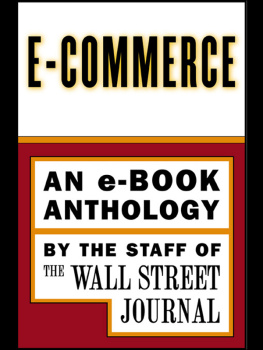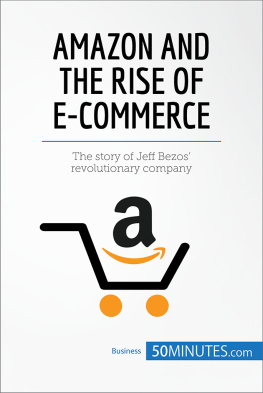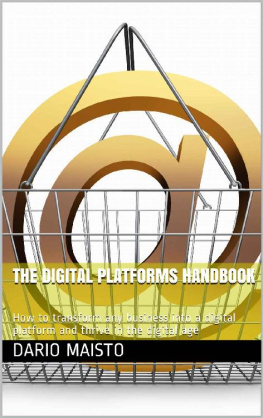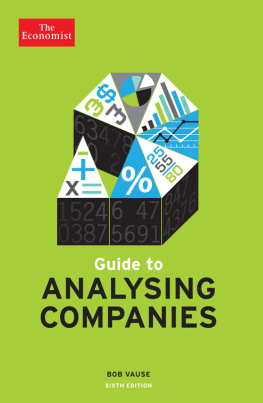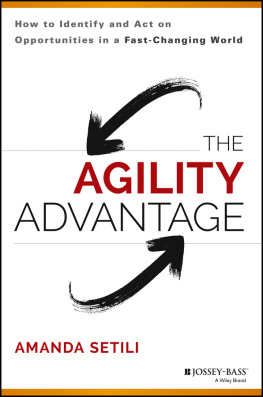ONE
A Head Start
BY DAVID PRINGLE
April 17, 2000
W hen department-store company Karstadt-Quelle AG started an online shopping mall back in October 1996, Germanys retail industry raised a collective eyebrow.
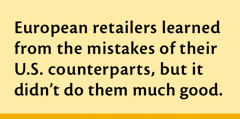
After all, at that time, fewer than 750,000 German households had access to the World Wide Web, and the Internet was widely regarded as being only for teenage technology enthusiasts.
But things changed quickly, and by the end of 1997, five million Germans were online, according to Jupiter Communications, a New Yorkbased research group, giving Karstadt a promising prospective market.
What was it that prompted the retail giant to rush into e-commerce so earlysix weeks before it even got around to putting up a basic corporate Web site? Credit a combination of foresight and fear.
It was very early for Germany, but we had known about the scenario in the U.S., says Holger Pleines, manager of e-commerce at Karstadt. And we had seen that we could have a problem in the future through Internet technology: The producer of items could sell direct to the customer, and we could lose revenue in our department stores.
Thats been the good news for Karstadt and several other European retailers: Because Europe was about two years behind the U.S. in adopting the Internet as a retail channel, European retailers had a chance to see beforehand where things were headed. And with that glimpse of the future, they could try to steer it in their direction.
Whats more, because there wasnt a lot of interest in Europe in 1997 in funding Internet start-ups, conventional retailers had a golden opportunity to lock out the start-ups before they could get going. Venture-capital money was still relatively scarce, says Joe Sawyer, a senior analyst with Forrester Research Inc. in Cambridge, Mass., and it was hard to conjure up a lot of excitement about Internet pure plays.
So, how well have these high-street retailers fared? Well, thats the bad-news part of the story: It seems many havent been able to capitalize on the early start. Surveys conducted in January by London-based research firm MMXI Europe show that brick-and-mortar retailers own none of the 10 most-visited retail sites in the U.K. In Germany, two conventional retailers ranked in the top 10, and in France, three made the top tier. (Two of the top 10 online merchants in the U.S. are owned by conventional retailers, according to MMXI.)
Most of the leading retail sites in Europe either are owned by American Internet companies, notably Amazon.com Inc., or are run by local mail-order firms such as the U.K.s Software Warehouse PLC, which founded the popular site Jungle.com.
Karstadt started early but had to relaunch its online mall, My-World.de., at the end of 1997 after consumers complained that its initial version was difficult to navigate. Karstadt sunk a ton of money into doing their site over and over again, says Mr. Sawyer at Forrester.
My-World is only the 26th most-visited retail site in Germany, according to MMXI. Mr. Pleines wont disclose what proportion of Karstadts sales currently come through My-World.de, which now stocks 1.2 million product lines. He says only, It is rising fast from a small base.
Another retailer found that starting early was no guarantee of success. Nick Jones, a London-based analyst with Jupiter, says that U.K. retailer Argos Ltd. was selling online in early 1996, but the companys Web site offered only 12 product lines and sales were very slow. Argos has since increased its product range significantly, and sales have picked up.
Still, analysts say the brick-and-mortar companies in Europe are in a relatively strong position compared with their U.S. counterparts. Mr. Sawyer at Forrester says that traditional European retailers are neck-and-neck with the local dot-coms in terms of the quality of their online storesthough they trail the international dot-coms and local mail-order firmswhile American retailers are still generally trying to catch up with the Internet start-ups.
Whats more, a handful of European brick-and-mortar companies did benefit from getting onto the Web early. Book, video and computer retailer FNAC, owned by Pinault Printemps Redoute SA, made its Internet debut in 1997. It now has the 10th most popular retail site in France, according to MMXI Europe. Jean-Christophe Hermann, chief executive officer of FNAC.com, says the company sold $7 million of products through the Internet in 1999. Although this is a relatively small figure compared with sales by Web sites in other countries, only 16% of French adults use the Internet, according to International Data Corp., Framingham, Mass.

